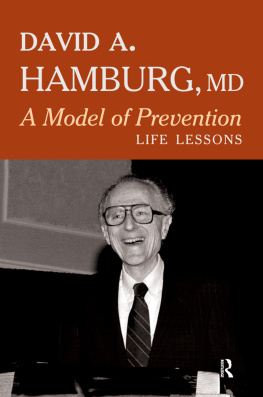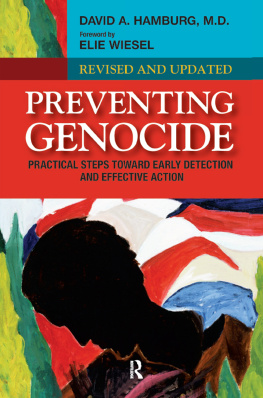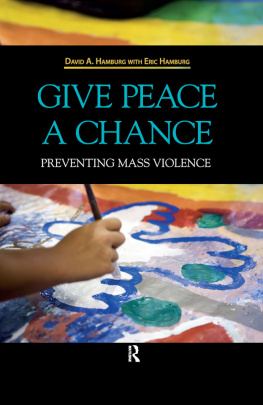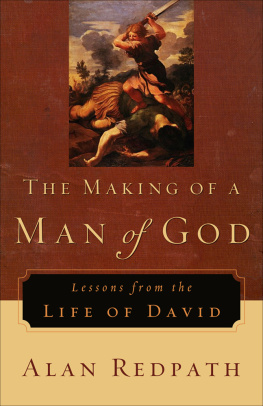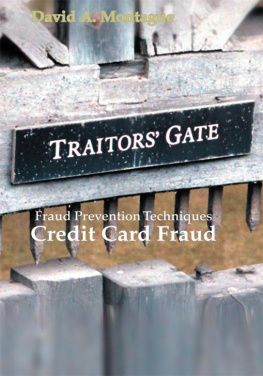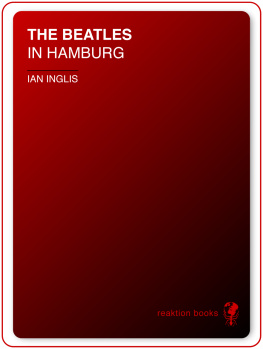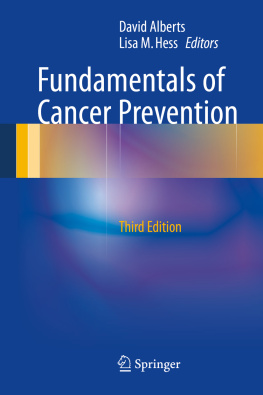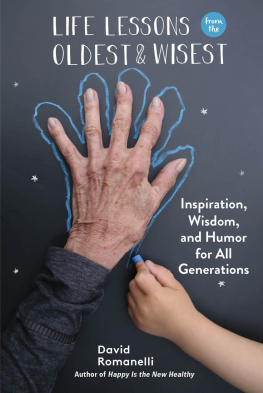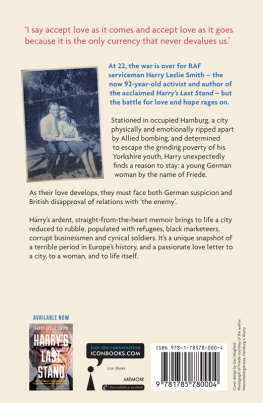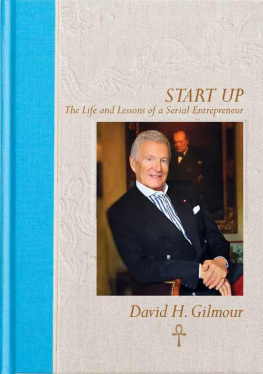First published 2015 by Paradigm Publishers
Published 2016 by Routledge
2 Park Square, Milton Park, Abingdon, Oxon OX14 4RN
711 Third Avenue, New York, NY 10017, USA
Routledge is an imprint of the Taylor & Francis Group, an informa business
Copyright 2015, Taylor & Francis.
All rights reserved. No part of this book may be reprinted or reproduced or utilised in any form or by any electronic, mechanical, or other means, now known or hereafter invented, including photocopying and recording, or in any information storage or retrieval system, without permission in writing from the publishers.
Notice:
Product or corporate names may be trademarks or registered trademarks, and are used only for identification and explanation without intent to infringe.
Library of Congress Cataloging-in-Publication Data
Hamburg, David A., 1925
A model of prevention : life lessons / David A. Hamburg.
pages cm
ISBN 978-1-61205-925-9 (hardcover : alk. paper)ISBN 978-1-31563-344-2 (eBook)
1. Hamburg, David A., 1925 2. PhysiciansUnited StatesBiography. 3. PsychiatristsUnited StatesBiography. I. Title.
R154.H237A3 2015
610.92dc23
[B]
2015003003
Designed and typeset by Straight Creek Bookmakers
ISBN 13: 978-1-61205-925-9 (hbk)
ISBN 13: 978-1-61205-926-6 (pbk)
Why this book? For some years, I have been encouraged by friends, family, and professional collaborators to tell the story of my unusual experiences, which have taken different, unexpected, surprising turns, hopefully leading to fruitful experiences. I have declined until now because I was concerned that such a book might be inherently self-serving and possibly inaccurate. But as I have tested the waters, I found much more extensive contemporary records that make possible accurate recollectionsthe net effect being a set of very unusual opportunities, many totally unexpected and altogether reflecting the American spirit at its best. These materials include oral histories from several points in my career, conference summaries, interviews with key people, and personal experiences in highly stressful situations.
From childhood on, the central theme of my life has been the relief and above all the prevention of human suffering to the extent possible in light of best scientific evidence. This theme has been present in my adventures in an immigrant family in the early twentieth century, my attempts to find ways to help individual patients and then small groups, and in my efforts to prevent mass violence. The main organizing principle for such prevention has been learning from others: friends, family, scientists, scholars, practitioners of various kinds. Throughout these twists and turns of opportunity, there are basic themes, values, and approaches. I hope to make them clear in this book.
The issue is the extent to which the account of my adventures becomes self-serving beyond my actual desire. That is what held me back from writing this book for several years. But then I got feedback from people I respect highly who essentially urged me to include material showing that the work I had done is taken seriously by serious people, has been useful in difficult situations, and has been recognized and used by institutions of high caliber. There is an optimal range for this kind of material. The dilemma is that one needs to show that all this work done, and all these strange twists of fate, can provide useful lessons for others, can be built upon in future years for useful purposesand yet not claim too much. As a professor at heart, I particularly think about gifted, dedicated young people in this context, hoping that my experiences may give them encouragement to pursue a prevention agenda of one sort or another and improve on what I have done.
I became aware of the increasing dangers, not only from diseases related to my early interest in medicine but also those related to the pervasive use of lethal weapons, the ultimate destructive power of weapons of mass destruction, terrorism, the risks of drastic climate change, and the dark side of information technology. Facing these dangers, I found myself searching for ways to help in coping with them, more and more looking toward early prevention of damage and the benefits of sharing capacities out of necessity for well-being. I have come to an emphasis on ways in which prosocial orientations could be developed on a universal basis throughout the lifespan and across the worldno easy task but an essential one and probably feasible, some steps being possible now or soon, others measured in decades and generations.
I have tried to make friends whose knowledge, experience, and skills could illuminate very difficult questions, and I made every effort to bring out the best in those who could make constructive contributions and see to it that they have opportunities and recognition for wisdom and accomplishments. We would have to face dangerous problems if we were going to make any contribution to Cold War issues. The board and staff had the courage to stick with me in this improbable exercise for fifteen years. And so have other institutions with which I was associated.
From an early notion of practicing medicine on an individual basis, and thus relieve suffering, I came to the stunning question of whether we can really learn better ways of living from the horrible casualties of World War I, World War II, the Holocaust, the Cold War, and recurrent terrorism. I make no claim that my experiences and reflections in this book have done a lot to answer these terribly difficult questions, but they have developed a point of view based on the best available evidence the world can provide, with emphasis on preventionearlier the better and sustained over time.
This book is not a novel and not a textbook. I tried to select interesting stories from my voluminous experience and tell them accurately in a way that highlights the useful lessons I have learned. My fervent wish is that such lessons will be useful to others as well. Above all, I hope my adventures and recommendations will stimulate serious consideration and generate better ideas.
My work on human stress responses early in my career led gradually to my study of the particularly severe stresses of mass violence and my formulation of the pillars of prevention of mass violence: education for human survival; proactive help, including early preventive diplomacy; fostering indigenous democracy; building equitable socioeconomic development; promoting and protecting human rights; and major restraints on highly lethal weapons. There is great potential for preventing mass violence if such pillars are built early and applied to the tensions of human adaptations, especially intergroup and international differences.
Modern humanity is a single, interdependent, crowded, worldwide, weaponized species, vulnerable to pervasive stress from severe poverty, from harsh disparities, drastic climate events, destructive ideologies, and much more. So we must cooperate in our own self-interest. This should be crucial in modern education, research, and public policy. There is no illusion here that weapons and their use will soon go away. The inherent right of self-defense remains. But there are perspectives that open the way to cooperative efforts that diminish the various risks that are so apparent in 2015.


